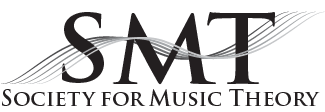Hello!
If you would like to participate in discussions, please sign in or register.
Categories
In this Discussion
- Andre Mount February 2016
- Elizabeth Marvin February 2016
- Ellen Bakulina March 2016
- Trevor deClercq February 2016
Most Popular This Week
Due to changing needs and technologies, the SMT Executive Board has decided to retire SMT Discuss (effective Nov. 9, 2021). Posts will be preserved for archival purposes, but new posts and replies are no longer permitted.
Dictation Manuals/Software
Hello everyone,
My department's aural skills classes currently use the Berkowitz A New Approach to Sight-Singing as a sight-singing text, along with the Horvit Music for Ear Training as a source for student homework and practice with dictation. We're thinking about replaceing the Horvit but are happy with the Berkowtiz. Does anyone have recommendations on a stand-alone dictation resource, either a manual with an online component or a something completely online? Thanks,
Adam J. Kolek
Instructor of Music Theory
Rowan University
SMT Discuss Manager: smtdiscuss@societymusictheory.org

Comments
Hi all -- Although I hate to put in a shameless plug, I will do so. Have you looked at The Musician's Guide to Aural Skills, vol. 2 by Phillips, Murphy, Marvin, and Clendinning? This volume focuses on dictation, and includes both "inductive listening" (harmonic dictation) and "contextual listening" (dictation from music repertoire including melodic and harmonic dictation, and also meter identification, rhythmic dictation, cadence and form identification, etc.). In the 2nd edition, this comes on a DVD packaged with the book, but in the 3rd edition (due this summer) it will all be streamed to students. The step-by-step contextual listening exercises are a hallmark of the text, but there is also a nearly limitless supply of SATB dictations as well. It comes with an Instructor's Manual with all the correct answers for the teacher. http://books.wwnorton.com/books/webad.aspx?id=20355 ; Although it is designed to be used with the sight singing book and harmony book in The Musician's Guide series, it can also be used as a stand-alone volume.
For another good possibility, take a look at Workbook 2 (Skills and Musicianship) that comes with Steve Laitz's The Complete Musician. Another option for contextual analysis is Aural Skills in Context by Jones, Shaftel, and Chattah. And for software, you can't beat MacGamut. You'll find fundamentals work (like interval and chord type), rhythmic and melodic dictation, and harmonic dictation -- self-grading, with reports out to the teacher.
Good luck!
Betsy Marvin, Eastman School of Music
Gary Karpinski's Dictation Manual seems like an obvious option:
http://www.amazon.com/Manual-Ear-Training-Sight-Singing/dp/0393976637/
http://people.umass.edu/music114/ManualAudioFiles.htm
I found it very useful when I taught at Hofstra.
Best,
Trevor de Clercq, MTSU
Another shameless plug: The Trained Ear
For the past year or so, I have been working on an web-based dictation resource for music students using material from open source and public domain musicianship texts. There are currently over 1000 exercises including rhythms, melodies, two-part melodies, and harmonic progressions (with plans to add many more in the coming months). The site is still in beta, but is very functional.
One significant advantage (and one of the primary motivations in creating the site): it is and will always be completely free.
Andre Mount
Crane School of Music, SUNY Potsdam
I am using Benward and Kolosick, "Ear Training: a Technique for Listening." It's a good dictation book that contains a multitude of exercise types, from intevral and chord ID to aural analysis of binary and ternary forms. It's very consistent in the way the material is organized (very strict progression from simple to coplex in each dictation type through all the 16 units). You do see parallel fifths in the harmonic dictations sometimes, but it's easy to correct these things as you go. The error detection and the transcription sections are great.
There is an online component where all the dictations are given (I assign those that I would ideally do in class, but there is no time for that). But I agree with Betsy Marvin that you can't beat MacGamut. Its best feature is its flexibility, in my experience.
Ellen Bakulina
Yale Department of Music